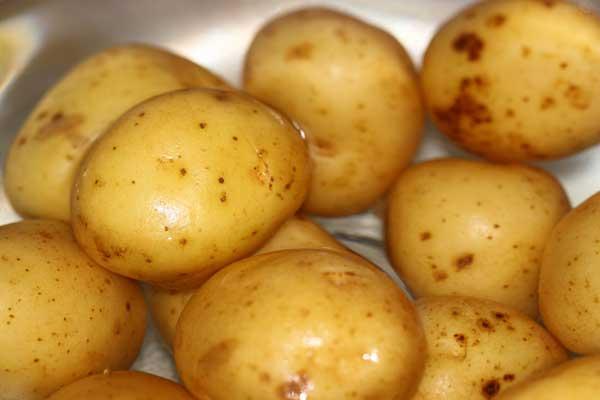Three Foods That Help Prevent Slippery Roads

This article was provided by AccuWeather.com.
Government agencies in the United States spend $2.3 billion every year to battle winter weather conditions, according to a study sponsored by the New York State Department of Transportation.
In their responsibility to keep roads open and safe during snowfall, transportation departments continue to investigate and implement new, sometimes unusual, strategies.
Unconventional sources of salt brines, such as beet juice, potato and cheese byproducts, are decreasing costs, lowering environmental impacts and are effective at temperatures well below zero.
These agricultural-based brines were rated highly by many states surveyed, noting the high ice melting capabilities and the overall safety impacts on wintry roads.
AccuWeather.com spoke with several transportation department officials about their seemingly off-beat solutions for winter weather conditions.
RELATED: Rock Salt Versus Salt Brines: What's Best for Road Safety? Is Winter Driving Safer With Four-Wheel, All-Wheel Drive Vehicles? Winter Weather Center
Get the world’s most fascinating discoveries delivered straight to your inbox.
Beet juice
As an agricultural byproduct created through the sugar beet process, beet juice brine is a useful tool for many highway departments.
PennDOT District 10 uses "Beet Heet," which Deborah L. Schreckengost Casadei, public information officer for PennDOT, describes as "an anti-icing and salt pre-wetting agent made from processed sugar beet molasses."
When combined with the traditional de-icing agent of salt, the thick red beet juice freezes at a lower temperature than just a pure salt brine, so it can be used in below-zero temperatures. It also provides additional adhesive powers for the brine, which allows the roadway to retain more even after rainfall.
Beet Heet has provided positive results for PennDOT, as they test the product on Route 422 in Butler County, Pa. They are currently evaluating the performance and cost effectiveness of these methods, in the hopes to enact a more widespread application.
This beet solution is also being used in Indiana, Ohio and Tennessee.
Casadei said, "PennDOT continually evaluates new materials and technology to provide cost effective tools to reach our goal of providing safe, passable roadways and bridges for the traveling public. "
Cheese
Brines are being created from cheese in a predictable place - Wisconsin. The state, already famous for its cheese, is implementing the use of salty cheese by-products to treat their roadways.
Although it was first used in the state of Washington, Wisconsin was a logical testing ground for this new brine.
"The brine is simply a salt bath used in the final manufacturing process. The cheese brine was a waste product that the dairy had to pay $25,000 annually to have treated off site," said Steve Warndahl, a highway commissioner in Polk County, Wis.
The cheese brine can be used in temperatures as low as minus 21 degrees, which is much lower than solid rock salt which is ineffective at minus 15 degrees Fahrenheit.
"This works well for us and at cost savings to our taxpayers," Warndahl said.
Potatoes
In Tennessee, a brine solution containing potato juice, commercially named Magic Salt, is helping keep roadways open and clear during winter. A byproduct of the distillation of vodka, it was discovered in Hungary that the mixture did not freeze in low temperatures.
Jerry Hatcher, maintenance director for the Tennessee Department of Transportation (TDOT), said "That's when someone realized it could be used as a de-icing agent."
The potato juice is mixed with a traditional salt brine at varying ratios depending on the temperatures and weather conditions. "We also use it to treat when we've already got snow or ice on the ground, to help [salt brines] work at a lower temperature," Hatcher said.
Although temperatures in Tennessee do not reach this threshold, the potato juice is also effective in temperatures well below zero.
The potato juice is more environmentally friendly than rock salt. Hatcher said, "[Agricultural brines] are friendly to the environment because they have reduced corrosive effects."
He continued, "In Tennessee, these [agricultural brines] are going to continue to be used and experimented, to see what's more effective for us at different temperatures. It's still pretty early on for us, but we know that we will continue to use these and find the solution that's most cost effective going forward."
Clearing snow and ice from roadways is of the utmost importance to provide the highest level of safety for travelers. Unconventionality aside, these innovative brines are lowering costs, lessening environmental impacts and providing safer roads.
Experimenting with solutions beyond traditional rock salt and even salt brines will prove to have a tremendous impact on road safety, environmental concerns and cost savings.
Have questions, comments, or a story to share? Email Erin Cassidy at cassidye@accuweather.com. Follow us @breakingweather, or on Facebook and Google+. © AccuWeather.com. All rights reserved. More from AccuWeather.com.
